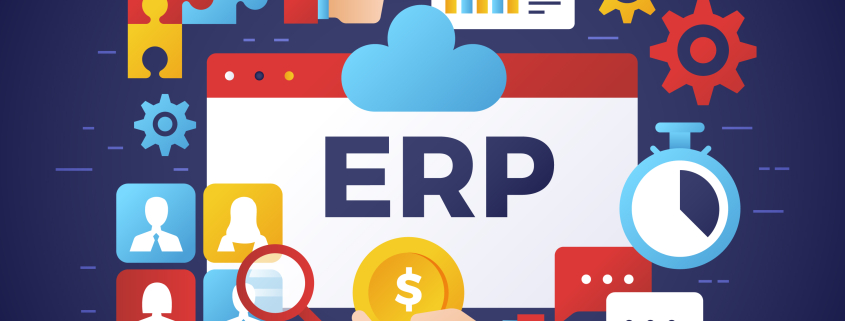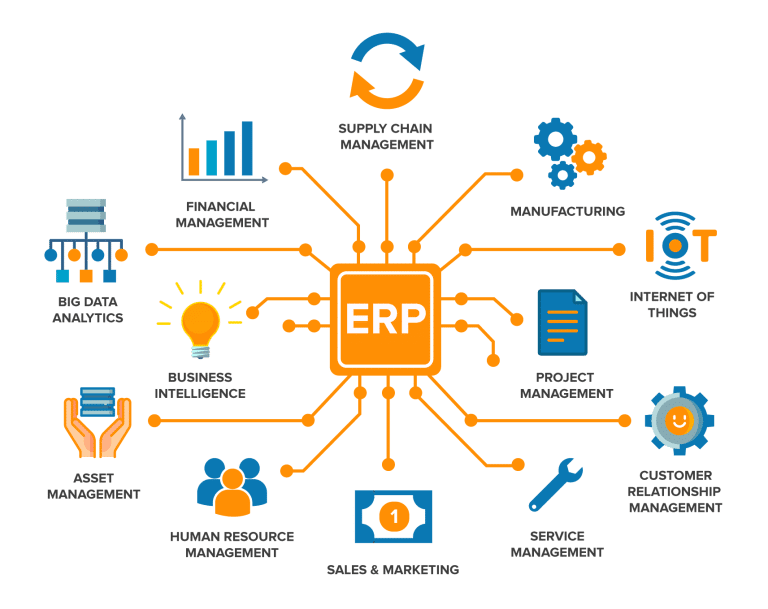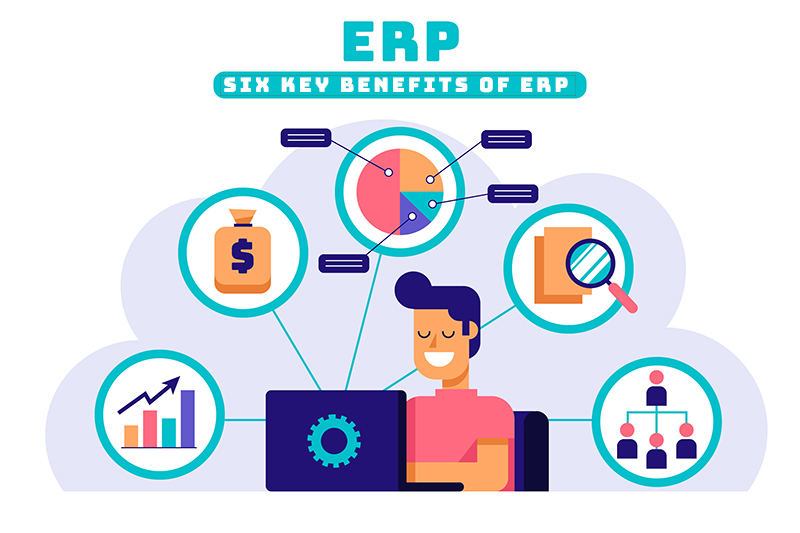How Havteq ERP SolutionTransform Business Operations.
Understanding ERP Solution and Their Importance
In today’s fast-paced business environment, understanding ERP solution is more crucial than ever. At its core, an ERP solution, or Enterprise Resource Planning system, integrates various business processes into a cohesive framework. This integrated management approach allows organizations to streamline operations and enhance efficiency across departments.
The benefits of ERP are manifold. By centralizing data and automating routine tasks, businesses can reduce operational costs and improve decision-making capabilities. But what is ERP beyond the technicalities? It represents a transformative shift in how companies leverage technology to foster collaboration and innovation.
As we delve deeper into the world of business software solutions, it becomes clear that adopting an ERP system is not just about keeping up with trends; it’s about positioning your organization for long-term success in a competitive landscape. Embracing these solutions can lead to significant improvements in productivity and growth potential, making them an invaluable asset for any forward-thinking enterprise.
What is the purpose of the ERP system?
To establish a single source of truth across the business, the ERP solution should contain a great deal, possibly all, of the organization’s data. For example:
- Finance makes use of Enterprise Resource Planning to close the books quickly.
- Sales require an ERP to manage all customer orders.
- Logistics depends on a well-functioning ERP system to provide clients with the proper products and services.
- Procurement uses ERP to source goods and services and manage supplier relationships.
- Accounts payable uses ERP to pay vendors accurately and on time.
- Management requires rapid visibility into the company’s performance to make timely choices.
- Banks and stockholders want accurate financial records, so they rely on dependable data and analysis enabled by an ERP system.
How do ERP systems work?
An ERP solution is made up of business applications or integrated module solutions that are connected to one another and can communicate with one another through a shared database. Although each ERP module usually focuses on a single business domain, they collaborate to satisfy the goals of the organization by sharing data.
Businesses can add and scale as needed, and they can select the module solution that best suits their needs, including finance, logistics, procurement, and human resources. Whether as part of the system’s basic functionality or through application extensions that interface with the module suite, ERP systems can also handle industry-specific requirements.
The six main advantages of an ERP System
As already mentioned, the benefits of putting in place an ERP system differ based on the deployment strategy. However, each of the contemporary ERP Solution packages has the following six advantages:
- Increased output: Simplify and automate essential company procedures so that employees across the board can accomplish more with fewer resources.
- More profound understanding: Get quick answers to business issues that are vital to the purpose, eliminate information silos, and establish a single source of truth.
- Quicker reporting: Accelerate financial and business reporting, exchange findings quickly, and take immediate action to enhance performance.
- Low threat: Increase company visibility and control, make sure regulations are followed, and anticipate and avoid risks.
- Inexpensive IT: Simplify IT and make working easier for everyone by utilizing linked ERP apps that share a database.
- Enhanced agility: Use effective operations and quick access to real-time data to spot and respond to new opportunities.
Choosing the Right ERP Solution for Your Business
Selecting the right ERP solution for your business is a critical decision that can have long-lasting impacts. Here are some factors to consider when choosing an ERP system:
- Business Needs: Identify the specific needs and challenges your business faces and look for an ERP solution that addresses those requirements.
- Scalability: Ensure the ERP system can grow and adapt to your business as it evolves.
- Ease of Use: Look for a user-friendly interface that will be easy for your employees to learn and use.
- Customization: Consider whether the ERP system can be tailored to fit your unique business processes.
- Vendor Support: Evaluate the level of support and training provided by the ERP vendor.
Havteq truly excels in delivering the best ERP solution to their clients. Their commitment to understanding each client’s unique business needs and challenges is commendable. By offering tailored solutions that integrate various functions such as finance, supply chain, human resources, and customer relationship management, Havteq empowers businesses to streamline operations and improve overall efficiency. Their expertise not only enhances organizational workflows but also fosters an environment where clients can thrive and reach their full potential.
The dedication of Havteq’s team to providing exceptional service and support further solidifies their reputation as a leader in the ERP solution space, ensuring that their clients are equipped with the tools necessary for success in an increasingly competitive landscape.
Future Trends in ERP Solution
As technology continues to advance, the ERP landscape is also evolving. Some future trends in ERP software include:
- Cloud-Based ERP: More businesses are moving to cloud-based ERP solutions for their flexibility, scalability, and cost-effectiveness.
- Artificial Intelligence and Machine Learning: These technologies are being integrated into ERP systems to provide predictive analytics and automate more complex tasks.
- Mobile ERP: With the increasing use of mobile devices, ERP vendors are offering mobile-friendly solutions to ensure employees can access the system from anywhere.
- IoT Integration: The Internet of Things (IoT) is being integrated with ERP systems to provide real-time data from connected devices, enhancing decision-making and operational efficiency.
FAQs (Frequently Asked Questions)
What is the power of enterprise resource planning solution, and what purpose does it serve?
An Enterprise Resource Planning known as ERP solution is a comprehensive software platform designed to integrate key business processes such as finance, supply chain, manufacturing, procurement, human resources, and customer relationship management (CRM). Its purpose is to automate operations and centralize data analytics to improve efficiency and decision-making in modern enterprises.
What are the main benefits of implementing an ERP solution in a business?
Implementing an ERP system enhances operational efficiency by streamlining processes and providing real-time data access. It reduces costs related to software licensing, IT infrastructure, and labor while improving scalability. Additionally, ERP systems strengthen customer experience through order tracking and personalized communication, ensure compliance via streamlined reporting, and safeguard sensitive data with robust security measures.
What key features should I look for in an ERP system?
Key features of effective ERP software include a centralized repository for customer information and order history, real-time inventory tracking to optimize stock levels, customizable reporting tools across various functions like finance and HR, collaborative functionalities for cross-departmental communication, AI-powered automation such as machine learning and robotic process automation (RPA), and a modular architecture that allows tailored configurations for scalability.
How do cloud-based ERP solution compare to legacy systems?
Cloud-based ERP solutions offer advantages such as reduced infrastructure costs, simplified maintenance, and easier scalability compared to legacy systems. Migrating from standalone or outdated accounting systems to modern cloud-based ERPs can enhance operational efficiency. However, organizations should prepare for resource-intensive implementation processes that require thorough planning.
How can organizations ensure they choose the best ERP Solution for their needs?
Organizations should consider factors such as industry fit, scalability, ease of integration with existing systems, and user experience when selecting an ERP solution. Evaluating these criteria carefully enables businesses to leverage the full potential of best-fit ERPs that support scalable growth, adaptability, and competitiveness in evolving markets.







